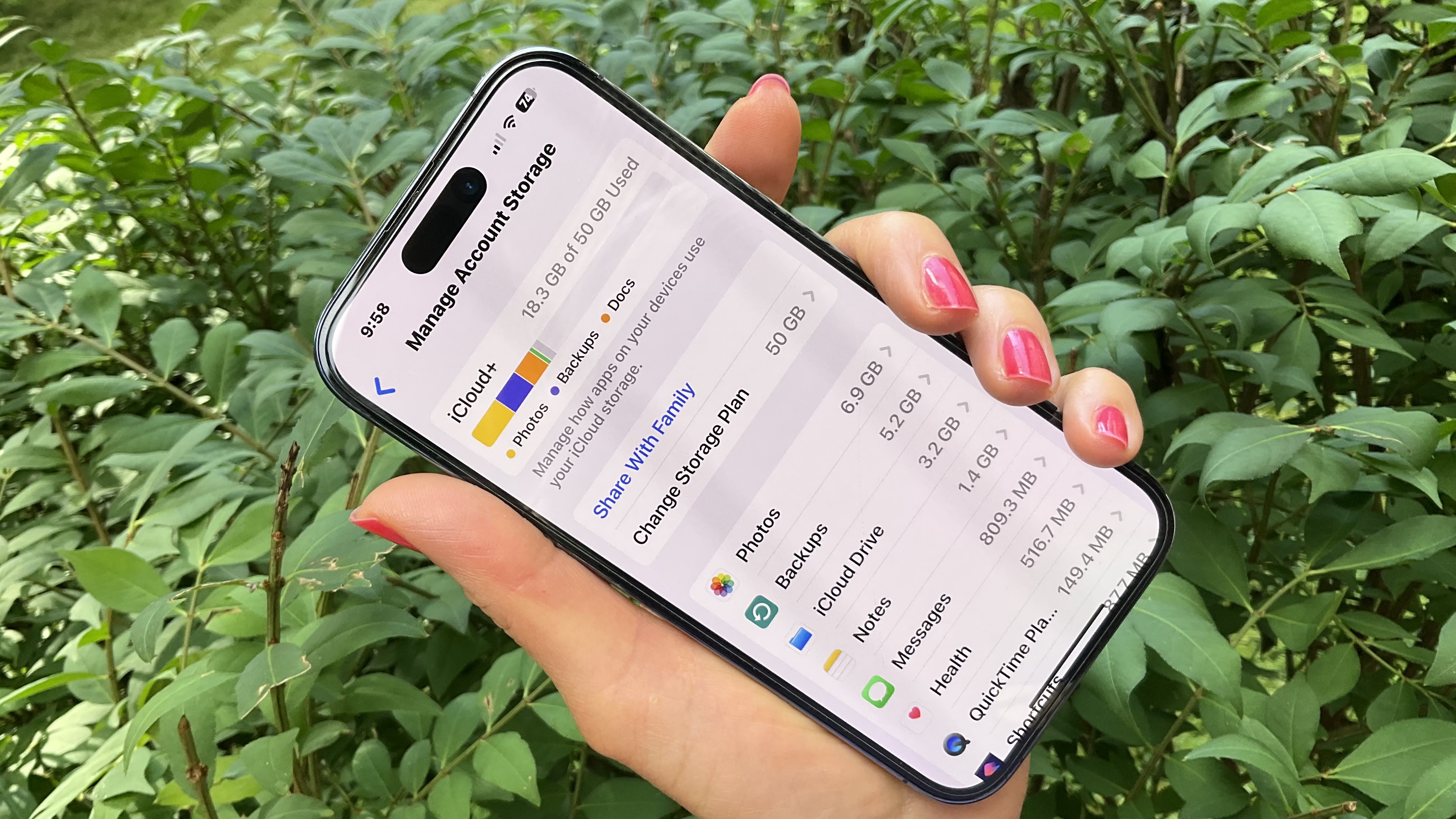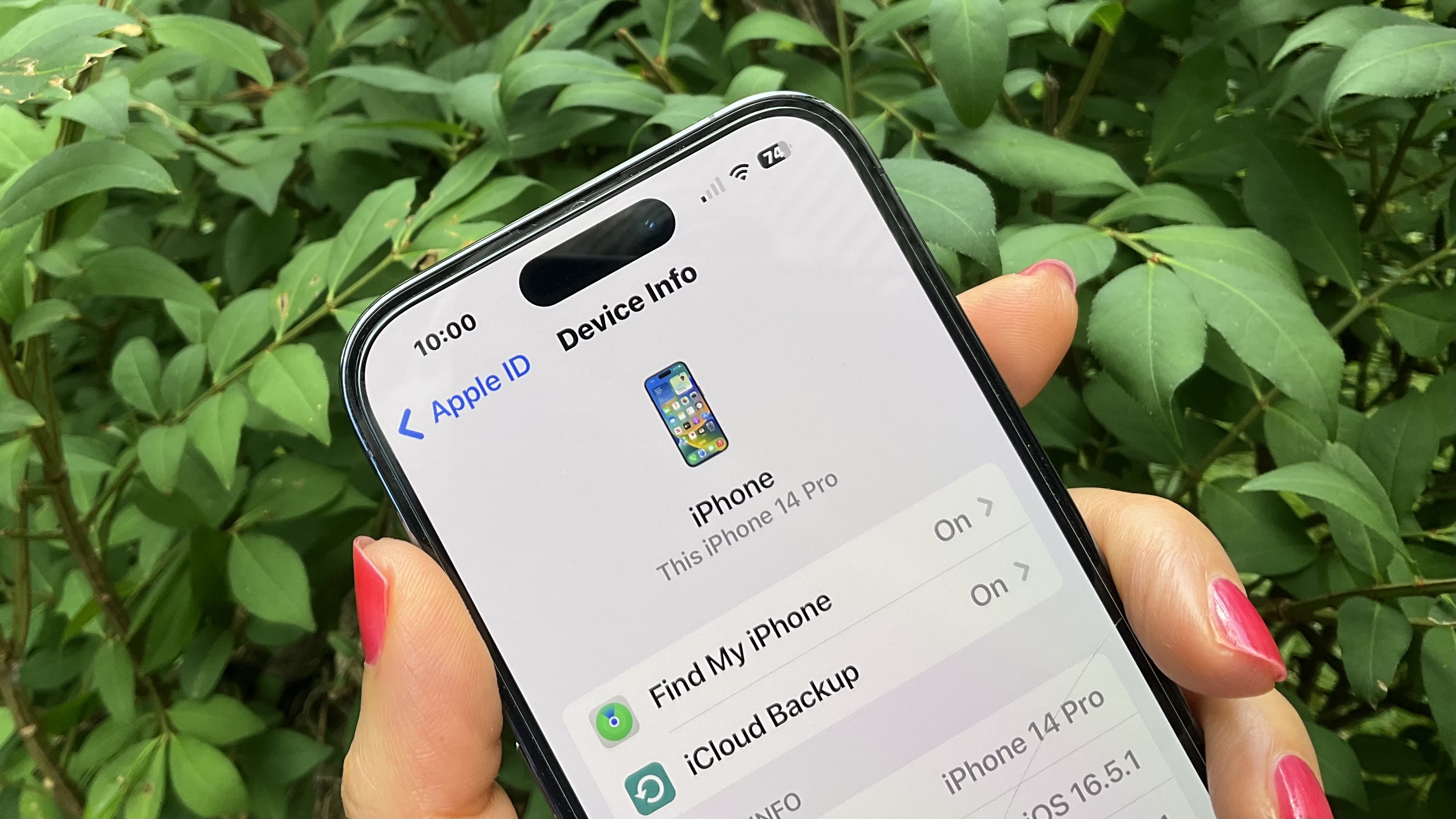iCloud: Everything you need to know
Learn more about Apple's safety net.

iMore offers spot-on advice and guidance from our team of experts, with decades of Apple device experience to lean on. Learn more with iMore!
You are now subscribed
Your newsletter sign-up was successful
iCloud is the most recent (and longest-lasting) iteration of Apple's online services for its customers, including email, contacts, calendars, content sync, and online storage, à la Dropbox or Google Drive. The service is accessible from both iOS and macOS devices, as well as Windows and the web, and features a variety of storage tiers to choose from.
Here's everything you need to know about iCloud.
What is iCloud?
iCloud is Apple's cloud solution for keeping your digital life in sync across your devices. iCloud can store and sync everything from calendar events to the photo album for your most recent vacation so that you can access that content anywhere on any Apple device.
Additionally, iCloud also powers syncing for a lot of third-party apps on iPhone, iPad, and Mac, keeping documents, lists, podcasts, and more up to date on the relevant devices.
What does Apple store or sync with iCloud?
Almost all of Apple's native apps on iOS, as well as their Mac equivalents, stay in sync using iCloud. These include:
- Photos
- Contacts
- Calendar
- Notes
- Reminders
- Messages
- News
- Home
- Health
- Wallet
- Books
- Find My
- Maps
- Shortcuts
Your Safari bookmarks and open tabs can also be synced so that you can continue your web browsing on any of your iCloud devices with Safari installed. iCloud can be used to securely store and sync your log-in information for various websites with iCloud Keychain, too.
If you're looking for general online storage, you can use iCloud Drive, which will store and sync anything you put into it, making documents, images, audio files, and much more accessible across your iOS and macOS devices.
iMore offers spot-on advice and guidance from our team of experts, with decades of Apple device experience to lean on. Learn more with iMore!
As previously mentioned, iCloud can also sync data from third-party apps so that your entire digital life stays up-to-date across your devices, and third-party apps can access iCloud Drive for storage as well.
We have a how to set up and access iCloud Drive on the Mac guide that's essential if you want to use Apple's cloud storage service from your laptop or computer.
What is iCloud+?
At WWDC 2021, Apple announced an update to its iCloud offering in the form of iCloud+. Unlike the company's other Plus-branded service offerings, iCloud+ is not actually an extra tier or premium add-on and is instead more of a rebrand of iCloud itself.
iCloud+ adds some new features, namely the privacy-focused Hide My Email and Private Relay, plus enhanced HomeKit Secure Video storage. If you are on a paid iCloud plan, you already have iCloud+ and get these extra features at no additional cost.
Is iCloud free to use?
You can use iCloud for free, though you might not have the best experience even if you're running the best iPhone or iPad.
You can set up and use an iCloud account free of charge but you start with a small (quite frankly, too small) amount of storage: 5GB. This data will quickly be eaten by your photos, videos, iCloud Drive content, and your iCloud backups. Once filled, you won't be able to store more without upgrading to a paid iCloud storage plan. We have a handy guide that helps you decide which iCloud storage plan you should get. Or you will need to delete old iCloud backups.
What do iCloud storage plans cost?
iCloud has a few different storage plans that you can pick from and the arrival of iCloud+ has not changed the prices or storage tiers. Here's how they break down.
- 5GB - Free
- 50GB - $0.99 per month
- 200GB - $2.99 per month
- 2TB - $9.99 per month
You can manage your iCloud storage via one of your Apple devices at any time if you want to change, upgrade, or downgrade the amount of storage you have for your iCloud account.
If you're not sure which of the different options is right for you, read our which iCloud storage plan should you get guide.
Is iCloud included with Apple One?
Yes, Apple's services bundle, Apple One, includes iCloud alongside other offerings like Apple Music, Apple TV+, Apple News+, Apple Arcade, and Apple Fitness+.
The amount of iCloud storage included will depend on the Apple One bundle you go for: Individual, Family, or Premier which offer 50GB, 200GB, and 2TB of iCloud storage, respectively. If you use a couple of Apple's other services, it probably makes sense to bundle them together with Apple One to get some savings.
What is an iCloud backup?
In essence, an iCloud backup is a copy of your device's data that is saved off-device. If your phone was lost, stolen, or damaged, you'd be able to quickly get a new one set up with all of the same information and content. It's a good idea to regularly back up your iPhone or iPad (or any device, for that matter) in case the worst should happen.
By default, your iPhone or iPad will back up to iCloud automatically each day provided your device is connected to Wi-Fi and on charge. For most people, this process will happen overnight which is when your phone is most likely to meet these conditions for an extended period of time. You can also manually back up your iOS devices from the Settings app at any time.
When restoring your iOS device or setting up a new one, you can choose to restore from a recent iCloud backup which will put everything saved from that date and time onto the device.
Exactly what's included in an iCloud backup?
This is Apple's official list of what is included in an iCloud backup:
- App data
- Apple Watch backups
- Device settings
- Home screen and app organization
- iMessage, text (SMS), and MMS messages
- Photos and videos on your iPhone, iPad, and iPod touch
- Purchase history from Apple services, like your music, movies, TV shows, apps, and books
- Ringtones
- Visual Voicemail password (requires the SIM card that was in use during backup)
Your backups only include information stored on your iOS device. Content such as Calendars, Contacts, Notes, Reminders, your iCloud Photo Library, and iCloud Drive content, are constantly kept in sync via iCloud, and thus don't need to be included in your backup. Even if you set a device up 'as new,' i.e. not from a backup, you'll still see this type of syncing data once you sign in with your iCloud account.
Where can I use iCloud?
iCloud support comes built-in on every modern Apple device and has since its introduction in 2011. You can manage your iCloud account in the Settings app on iPhone, iPad, and Apple TV as well as System Preferences on macOS. You can also manage everything, and even restore certain lost items, using iCloud.com.
Can I access iCloud on the web?
Indeed you can. iCloud.com lets you access Mail, Contacts, Calendars, Notes, Reminders, and Photos from the web on any modern browser. You can also check out iCloud Drive and what you have stored in there, as well as web-based versions of the iWork suite, Pages, Numbers, and Keynote.
Each of these web apps offers most of the same functionality as their iOS and macOS counterparts, including photo management in Photos, creating and managing events in Calendars, and even making documents and collaborating with others on projects in the iWork apps.

Furthermore, iCloud.com is very useful in conjunction with Find My so you can locate lost devices, AirTags, or see where your friends and family are at.
Can I use iCloud on Windows?
Yes, you can. iCloud is officially supported on Windows, and you can download the official iCloud for Windows app onto your PC in order to set up iCloud syncing.
iCloud for Windows can be configured to sync items to iCloud Drive, send images to your iCloud Photo Library, sync your mail, calendar, and contacts with Outlook, and even sync your bookmarks with a browser of your choice.
Can I use iCloud on Android?
As of right now, there is no official solution for using your iCloud account with Android devices to sync contacts and calendars, store photos in iCloud Photo Library, or keep content in iCloud Drive.
That being said, you can use your iCloud email address on Android within various email apps, so if you do need to use an Android device, you can at least get your email messages. You can also access iCloud.com via Android web browsers.
Can I share iCloud storage with my family?
Yes, you can. If you set up Family Sharing, in addition to being able to share App Store purchases and an Apple Music subscription, your family members will be able to share your iCloud storage. Apple stresses that when you choose to do this, all photos and documents stay private, and family members won't be able to snoop on what others have stored in iCloud.
How do I sign up for an iCloud account?
You can create a new iCloud account on any iPhone, iPad, or Mac. When you set up a new device, you'll be given the option of using a current Apple ID for iCloud or setting up a new Apple ID to use with iCloud.
You can easily create a new Apple ID on your iPhone or iPad or set up new Apple ID on your Mac if you don't already have one and use it with iCloud.
iCloud is basically a safety net for Apple users. By simply allowing iCloud to do its thing and keeping your devices regularly backed up, your important data is always at your fingertips. Anytime you buy a new device, you'll feel confident knowing that everything you need will be there.
Adam Oram is a Senior Writer at iMore. He studied Media at Newcastle University and has been writing about technology since 2013. He previously worked as an Apple Genius and as a Deals Editor at Thrifter. His spare time is spent watching football (both kinds), playing Pokémon games, and eating vegan food. Follow him on Twitter at @adamoram.
- Karen S FreemanContributor

